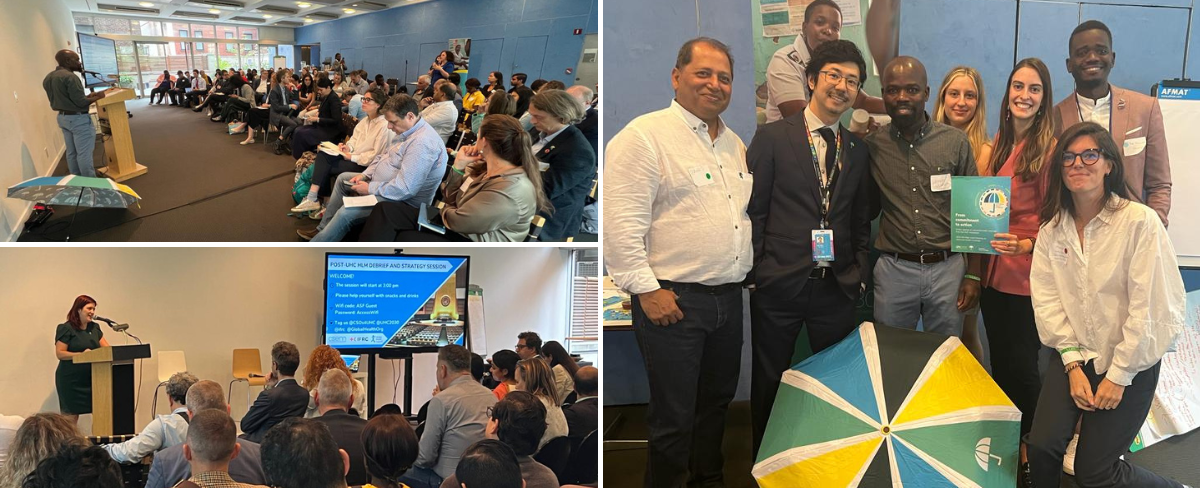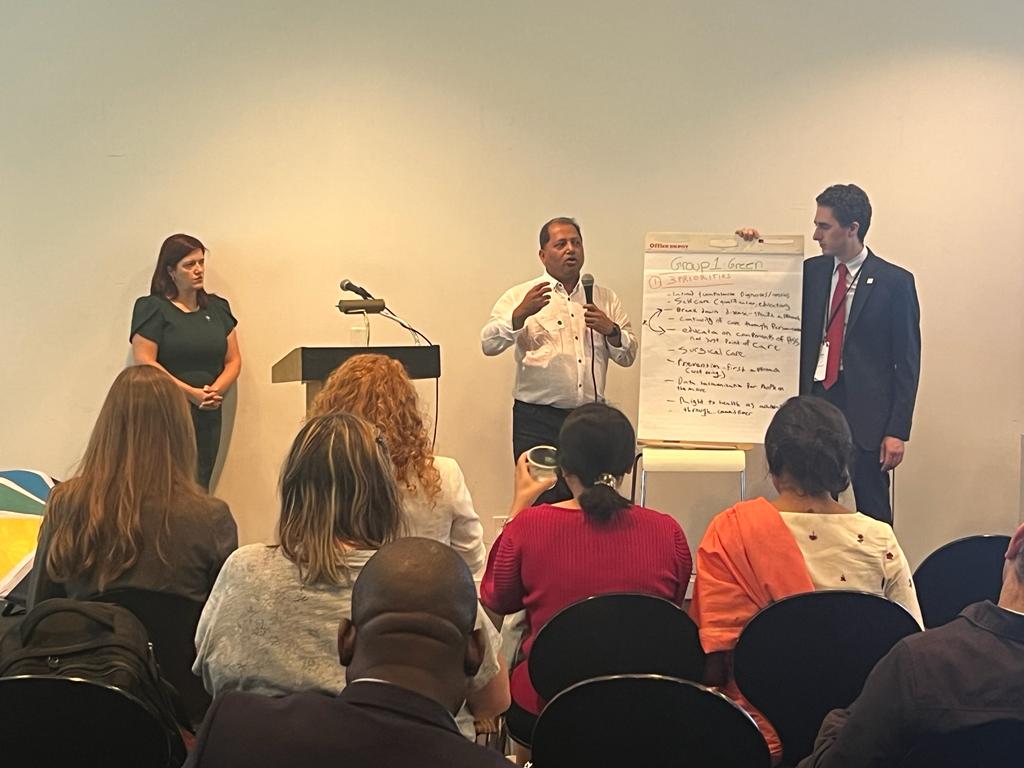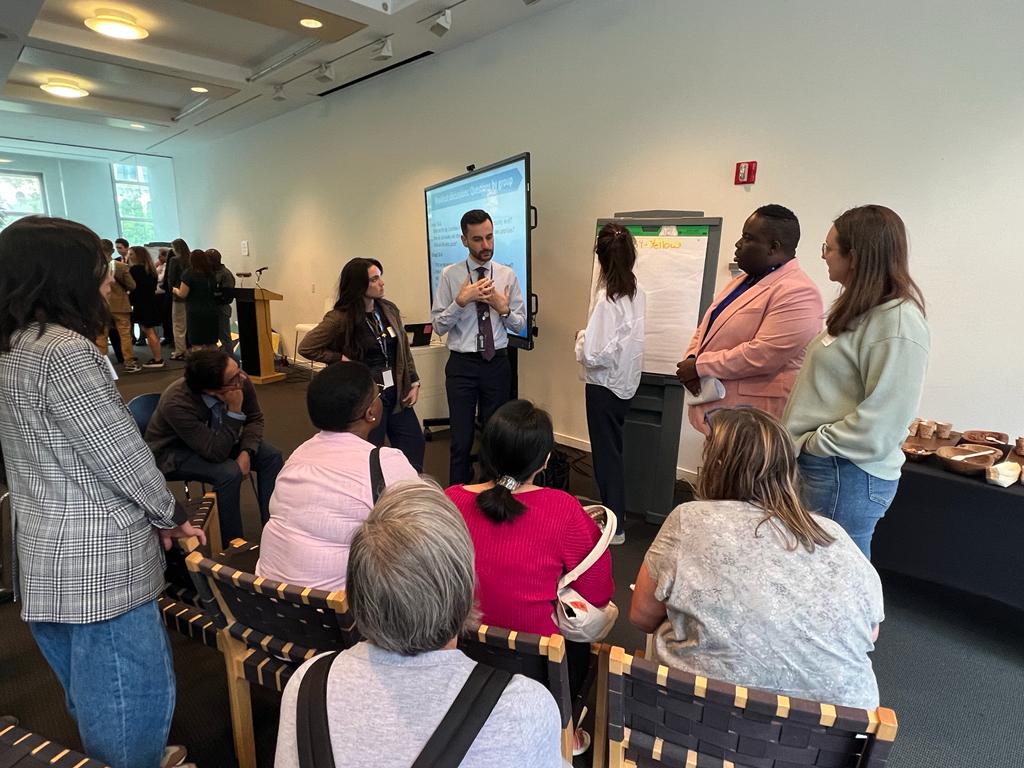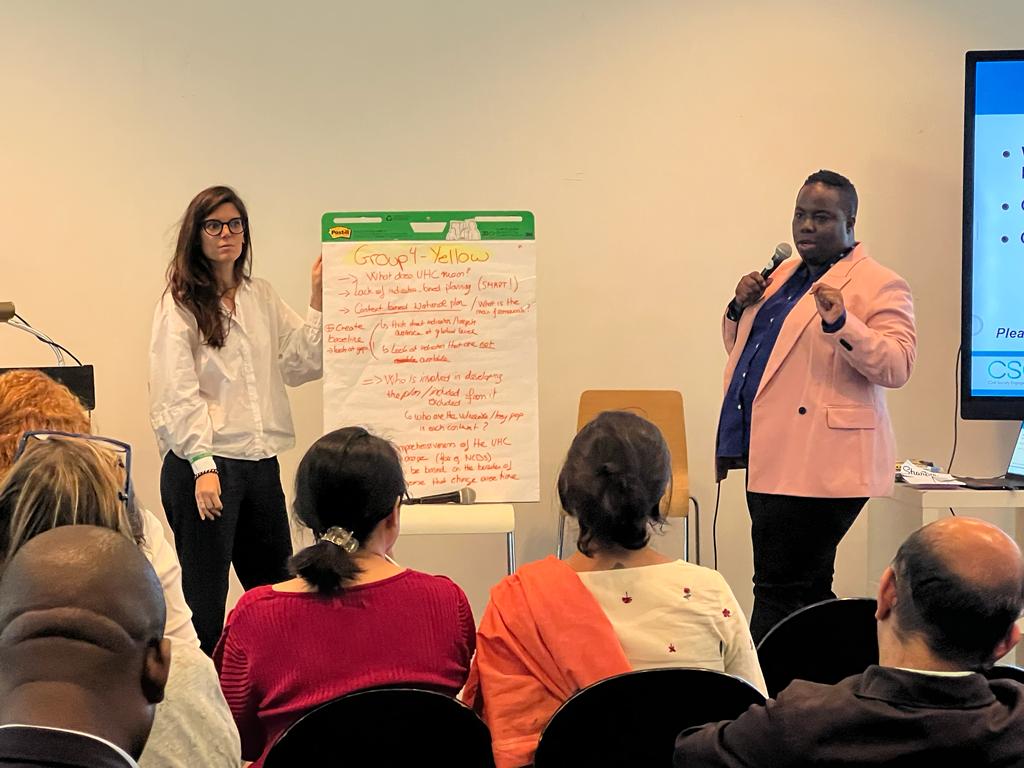
Context
On 21 September 2023, the UN Member States officially approved the 2023 Political Declaration (PD) on Universal Health Coverage (UHC). Organized under the theme of “Universal Health Coverage: expanding our ambition for health and well-being in a post-COVID world”, the 2023 high-level meeting on UHC provided countries and stakeholders an opportunity to reinvigorate progress towards delivering health for all.
The Political Declaration on UHC was formally adopted by the UN General Assembly on 5 October 2023 and is available in all UN languages: English, Arabic, Russian, French, Spanish and Chinese.
We welcome the adoption of this political declaration which recommits Member States to making health for all a reality by 2030. This is the result of a long process of collaborative and tireless advocacy by many stakeholders, including civil society and communities.
Civil society debrief and strategy sessions
On 22 September 2023, following the UHC HLM, the Civil Society Engagement Mechanism (CSEM) for UHC2030, the International Federation of Red Cross and Red Crescent Societies (IFRC), and the Global Health Council (GHC) convened civil society advocates and other stakeholders committed to advancing UHC for a post-HLM debrief and strategy session. The session aimed to leverage the presence of UHC advocates who were in New York to not only reflect on the HLM outcomes, but to discuss the way forward and how advocates will work together to sustain the global political momentum, drive the implementation of UHC commitments, and hold leaders accountable.

A second session was organized online on 29 September, to get more feedback from all our members, especially those who couldn’t make it to New York. The recording is available here. You can still give us your feedback by completing the survey here.
Thank you to the 140 participants over the two sessions for the rich and fruitful discussions.
Reflections on the UHC HLM outcomes
The sessions provided a space for civil society organizations to share our preliminary analysis of the HLM outcomes.
Overall, the UHC Political Declaration aligns with the 8 areas of the Action Agenda from the UHC Movement, especially the sections on Strengthening the health and care workforce for quality healthcare (AA4) and on Connecting UHC and health security (AA8).
Compared to the 2019 Political Declaration on UHC, this year’s text reinforces the position on primary healthcare (PHC) as an essential pathway to achieving universal health for all; bring more emphasis on the need to improving training, development and recruitment of community health-workers (CHWs) and on the recognition of the role of women in the health workforce; stresses citizen engagement/social participation, digital health and patient safety; and makes new links between UHC and PPPR.
Nevertheless, several essential points are still missing to properly ensure health for all. While adopting a stronger language on financial protection and financing than in 2019, the 2023 political declaration on UHC is still lacking a clear health spending target (the Action Agenda called for 5% GDP). Despite a strong language on ensuring key and vulnerable populations have access to essential health services, the document does not make reference to populations entirely left out of the health system (LGBTQIA+, sex workers, people in prison etc). The document also does not include enough on sexual & reproductive health & rights (which was stronger in the 2019 political declaration). Lastly, there is almost no language on accountability mechanisms and the role stakeholders play in holding governments accountable for their UHC commitments.
Some of the missing text/commitments in the PD were highlighted by member states during the plenary session, which means these gaps have been recognized in the official proceedings.
A deeper analysis of the outcomes of the 2023 political declaration on UHC will be published soon. Stay tuned!
Key takeaways from the discussions
The events also both provided CS with the opportunity to discuss their advocacy priorities, activities and how to work together to take the outcomes of the HLM forward.



Below are some of the top post-HLM priorities mentioned by CS among the two sessions:
- Urge governments to increase funding for healthcare, understanding that this would require communication and collaboration with financial ministers from other non-health sectors
- Establish a measurable accountability and monitoring mechanisms for UHC at the country and regional levels
- Strengthen social participation so CS and other stakeholders have the opportunity to lead and contribute to the design of health systems
- Strengthen the collection, analysis and distribution of health data to identify which population groups are being left behind, why and how concrete action can be taken to guarantee health for all
- Strengthen public campaign to increase public awareness on UHC, and mobilize more CSOs and organizations. This implies create tools to translate the PD into understandable language, and foster civil society engagement
Download the slides here for more information.
Thank you!
We warmly thank all our partners and speakers for their efforts and commitments to make this meeting fruitful including the Global Health Council (GHC) and the International Federation of Red Cross and Red Crescent Societies (IFRC), UHC2030, and especially to the CSEM Advisory group members for your invaluable work in making the voice of civil society heard.
Let’s keep rallying behind the UHC Action Agenda to call for world leaders to commit and ACT to achieve #UHC!
Resources
The UN Higl level Meeting on UHC
- The HLM was live streamed on UN TV. You can access the webcasts for the opening, plenary, and closing here, panel 1 here, and panel 2 here
- Click here for a detailed summary of the event, including a selection of quotes from speakers
The 2023 Political Declaration on UHC
- The Political Declaration on UHC is available in all UN languages: English, Arabic, Russian, French, Spanish and Chinese
Post UHC HLM debrief and stratgy sessions

